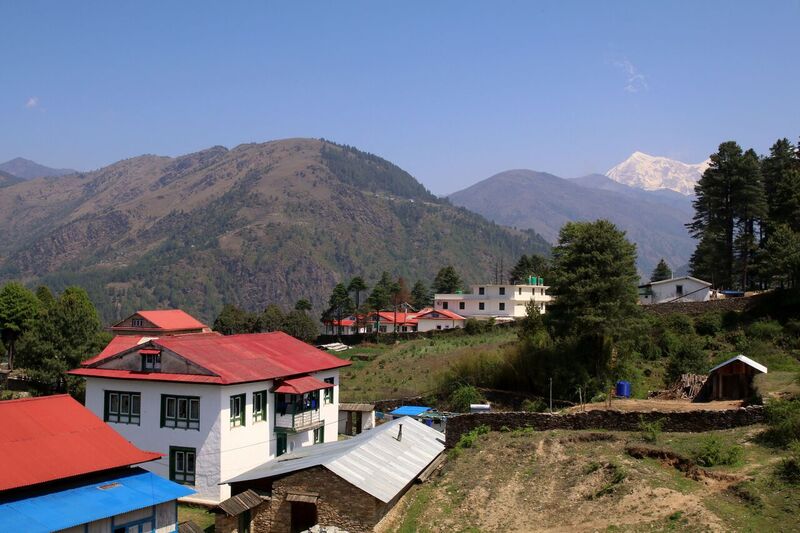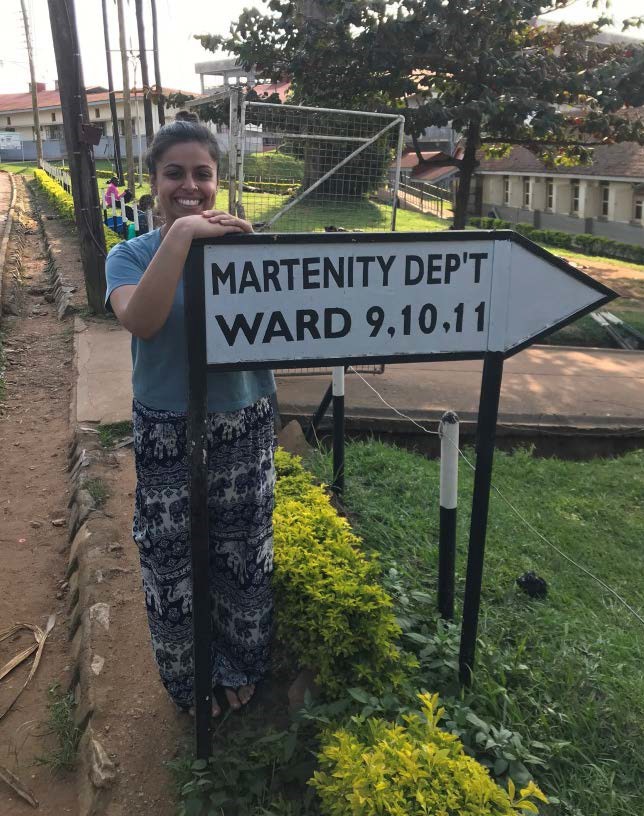Due by: January 31, 2020 at midnight, PST
The Centre for International Child Health and the Medical Staff Association of BC Children’s and Women’s Hospital are working together to support trainees in health professions who are engaged in global health with clinical activities related to the health care of neonates, children, adolescents, or women. Funding is available up to $1000 for trainees who elect to go on global health electives between January 1 and December 31, 2020 as part of their academic training. Candidates must be a resident or fellow in a postgraduate medical training program, or be a student in British Columbia enrolled in a health care discipline training program that leads to a professional designation.
Please visit the 2020 Global Health Trainee Grant Application webpage for more information and to begin your application today!

Phaplu hospital in Nepal
Providing Midwifery care across Uganda
In 2019, the Centre for International Child Health supported ten talented clinical trainees who pursued child-focused global health electives in South Africa, Laos, and Uganda. This support is a key part of CICH’s vision of partnering to advance children’s health globally. Juliette Mudra, Mary Kenwood, and Nushin Bollinger, third year midwifery students at BC Children’s & Women’s Hospital/UBC, each embarked on a 6 week elective at Regional Referral Hospitals across Uganda. This provided experience across a variety of care settings:

Mary prepares for her shift in a maternity unit.
“During my time in Uganda, I was fortunate enough to work in three hospitals; I was placed at Lira Regional Referral Hospital for 2 weeks, Mbale Regional Referral Hospital for 3 weeks, and Kawempe Referral Hospital (Kampala) for a week. While Mbale and Lira are rural hospitals with 20-30 births per 24 hours, Kawempe’s maternity unit is one of the busiest in the country; on average, 100 births per day take place on this maternity ward.” – Juliette Mudra
The learning objective of their elective was to gain experience in midwifery care in low-resource settings, focusing on understanding challenges and inequities in maternal and child health. Prior to the trip, they participated in a two week pre-departure training class. Despite this, Mary was still surprised by her experiences in Uganda: “We saw numerous cases of delay to provide the needed care once women reached our referral hospital. The hospital blood bank rarely had blood available. The pharmacy was closed overnight and on weekends, which prevented much needed medication from being administered in a timely manner. Power would be lost for the operating room, which would prevent or delay emergency cesarean sections. The autoclave broke for many days putting the hospital short on sterile equipment, and there was no running water in the labour suite for the entire time we were there.”

Juliette at Lira Regional Referral Hospital, along with local midwifery and nursing students.
A key component of the electives was the opportunity for reciprocal learning. Nushin described her experience at Masaka Regional Referral Hospital: “During this placement I also had the opportunity to help out with a teaching workshop [with] local Ugandan midwives. We taught these midwives skills such as management of post-partum haemorrhages, newborn resuscitation and management of shoulder dystocia, [using] theoretical presentations accompanied by hands on skill stations. It was wonderful to answer many of the questions that the local midwives had, and additionally was even more wonderful to have many of my own questions answered from these experienced midwives.”

Nushin outside Masaka Regional Referral Hospital.
While in Uganda, each student developed a deep appreciation for the communities they served, and their optimism in the face of these challenges. “Uganda is not without its beautiful moments, despite the sometimes apocalyptic conditions on the wards…The women in Uganda are so powerful and resilient, navigating an, at times, perilous health care system with so much grace, strength, and gratitude…These women have shown me that even in the most dire conditions, there is always something you can find to be grateful for, and I have much in life to be grateful about.” – Juliette Mudra
“The memories that I will hold dearest are the small moments with those women: a hand-hold that crosses language barriers, a sweaty embrace with an HIV positive patient who was terrified and in pain to show her she is not alone or judged, and of quietly sitting beside a teenaged mother just after she delivered a stillborn to hold space for her grief in a world where loss is all too common.” – Mary Kenwood
Juliette, Mary, and Nushin each benefited from their experience in a unique way. However they all look forward to using the skills they gained in their future careers as midwifes in BC and in further global maternal-infant health initiatives.